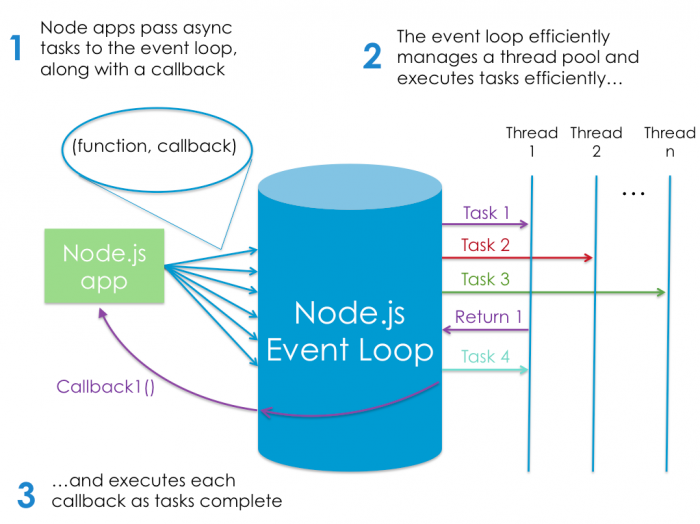Node.js is a software platform built on Google’s V8 JavaScript engine. It utilizes an event-driven, non-blocking I/O model and a single-threaded event loop which enables high throughput and application scalability.
Node’s utilization of the JavaScript language gives web developers the ability to code in the same programming language on the front-end and back-end of applications.
Benefits
1)Easy to install and run locally
2)Inexpensive to test/deploy using services like Heroku (Pay per resources)
3)Highly scalable due to asynchronous, event-driven processing
4)Unified programming language and data type (JavaScript and JSON)
Differ From other Framework
The major difference between Node and other server-side technologies is Node’s use of a single thread and asynchronous architecture. Many other server-side technologies are multi-threaded and synchronous, meaning that threads can be blocked while waiting for replies from the database. Each request creates a new thread from a limited pool based on system RAM usage. Node’s asynchronous design allows it to handle a large number of concurrent connections with high throughput on a single-thread, which makes it highly scalable.
Unlike jQuery, YUI, MooTools, NodeJs is a server side Javascript framework which will allow you to perform any operation that can be done by other serverside languages like php/java/dotnet.
The Node.js Event Loop Lifecycle

